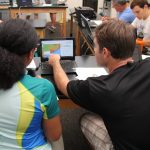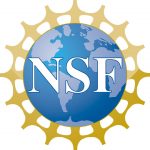An interdisciplinary group of UConn researchers is leading an effort to empower high school students to become “Eco-Digital” storytellers in their communities.
An ambitious team of researchers from across the University has won $3mn from the National Science Foundation to pursue a project in the neuroscience of learning. The program, known as TRANSCEND: TRANSdisciplinary Convergence in Educational Neuroscience Doctoral training, aims to get graduate students from both classic and atypical backgrounds into educational neuroscience research.
Since 2015, UConn has experienced a remarkable increase in the number of major National Science Foundation (NSF) awards bestowed upon early-career faculty members. The awards range from about $425,000 to over $1.3 million for Ido Davidesco, the first faculty member from the Neag School of Education to earn CAREER funding. The School of Engineering leads with seven faculty members awarded, followed by two for the College of Liberal Arts and Sciences and one for Neag.
The Connecticut Noyce Math Teacher Leaders (MTL) Program aims to support the development and retention of exceptional math educators in Connecticut’s highest-needs school districts — while also building these districts’ future leadership capacity in math education.
Through the help of Zaghi, Hain, Civil Engineering Professor Richard Christenson, Educational Psychology Professor Joseph Madaus, English Professor Tom Deans, and Literacy Education Professor Rachael Gabriel, the team will be developing a strength profiler tool, creating a peer mentoring program, piloting a technical writing program, and holding stakeholder workshops.
The National Science Foundation recently awarded an interdisciplinary group of UConn researchers $3 million for their project exploring the science of learning.
A group of UConn faculty that includes Neag School associate professors David Moss and Todd Campbell has received nearly $3 million in funding from the National Science Foundation’s Advancing Informal STEM Learning (AISL), a program that seeks to enhance learning in informal environments as well as to broaden access to and engagement in STEM learning opportunities.
While educators have long been encouraged to engage students in writing when teaching math, specific recommendations on how to leverage writing to enhance learning of mathematics have fallen short — until now.
Stephanie Mather Dominello and Lorna Carrasquillo, UConn graduates now student teaching in two Connecticut high schools, have a number of things in common. Both decided that they wanted to teach after looking at other career paths. Both say teaching is much busier and more challenging than they initially expected. And both want to make a […]



